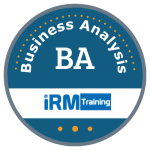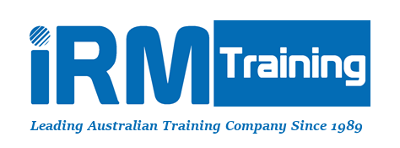
Complete BA Mastery Course
Duration: 5 days | Instructor-Led | Course Fee: $3,930 $3,450 + GST
Get recognised by your team as a skilled business analyst through this comprehensive business analyst course. Experience this “less theory more hands-on” approach to training where you learn and practice, through realistic case-study-based exercises, various business analysis techniques and how to apply them in Agile environments.
This is a training bundle consisting of the Business Analysis Accelerated and Agile Business Analyst courses, suitable for:
- New Business Analysts looking to learn the techniques and skills to succeed in their new role
- Experienced Business Analysts who has learnt ‘on the job’ seeking to formalise their skills and learn the Agile best practices
- A seasoned Agilist seeking to improve their business analysis skills
Gain the confidence, develop the skills and increase your productivity from day one. Find out why, for over 30 years, hundreds of Australian top universities, corporations, government departments and not-for-profit organisations choose IRM Training to upskill their staff.
IRM Training (est. 1989) is the longest serving Endorsed Education Provider (EEP™) to the IIBA® in Australia.
Module 1 – Understanding Agile BA
- The Agile Mindset
- Agile Processes
- Iteration Planning
- Daily Stand Up
- Iteration Review
- Retrospective
- Where an Agile BA Fits in an Agile Organisation
Module 2 – Analysing Business Requirements
- Creating a Shared Vision
- Product Roadmaps
- Progressive Elaboration
- Understanding Users and Personas
Module 3 – Documenting and Communicating Requirements
- User Stories
- Story Mapping
- Acceptance Criteria
- Definition of Done
Module 4 – Delivering Value
- Prioritisation
- Planning an MVP (Minimum Viable Product)
- Relative Estimation
- Backlog Management
- User Story Elaboration
- Monitoring Progress
Module 5 – Business Analysis Introduction
- Introduction to business analysis
- Introduction to Projects
Module 6 – Requirements
- Types of Requirements
- Identifying Non-Functional Requirements
- Making Non-Functional Requirements Measurable and Estimable
Module 7 – Stakeholder Analysis
- Types of Stakeholders
- Onion Map
- RACI Matrix
Module 8 – Requirements Elicitation
- Requirements Elicitation Methods and Formats
- Requirements Elicitation Do’s and Dont’s
- Handling Biases and Hidden Agendas
Module 9 – Writing Requirements as User Stories
- Epics
- Writing User Stories following the INVEST principle
- Acceptance Criteria
Module 10 – Estimation and Prioritisation
- Estimating Product Backlog Items
- Estimating Sprint Backlog Items
- MoSCoW Prioritisation
- Eisenhower Matrix
Module 11 – Use Cases
- Use Case Diagrams
- Textual Use Cases
Module 12 – Decision Tables and Decision Trees
- Decision Tables
- Decision Trees
Module 13 – Process Modelling Using BPMN v2.0
- Event
- Activity: Task, Sub-Process
- Gateway
- Artifact
Module 14 – Data Modelling
- Data Model
- Entity Relationship Diagrams (ERD)
Module 15 – Business Analytics / Business Intelligence
- Metadata
- Data Quality
- Data Warehouse, Data Marts
- Data Visualisation
- Tableau and Power BI Demo
Module 16 – Beyond User Stories
- Adding and Linking Complementary Data to User Stories
Modules or topics generally start with a trainer running a presentation interactively, followed by a case-study-based exercise.
In most exercises you will break out into smaller groups of 3-4 people, creating the opportunity to exchange ideas with other keen learners.
The course runs in a small group so there is plenty of opportunity to ask questions. For questions that are not directly related to the course topics, the trainer(s) may schedule a time during one of the breaks to answer them, to ensure your questions are answered while keeping the course on track.
Public courses are run remotely while in-house training can be run remotely or in-person. Regardless of the delivery mode, the course is always practical, hands-on, interactive and delivered live by a senior instructor with 15 – 25+ years’ experience with the skills to make the intensive short course interesting and enjoyable.
Find out more about practical training delivered remotely (live).
Eligibility requirements to become an IRM Training trainer:
- A minimum of 15 years’ business analysis experience in Australia.
- The ability to demonstrate in-depth knowledge in the real-world application of the course topics.
- Driven by the passion to help develop others.
- Excellent communication, presentation and people skills.
- A good sense of humour! You can absorb and retain more knowledge when the training is fun!
IRM Training trainers have worked in / with a diverse range of industries and government departments. Some also came from academic background as lecturers at Australian leading universities, on top of their 15+ years’ hands-on experience.
This course is suitable for various roles that perform business analysis tasks in an Agile environment, including:
- Business Analyst
- Agile BA
- Business Intelligence Analyst
- Project / Program Manager
- Project / Program Coordinator
- Business System Analyst
- Manager / Team Leader
- Other / hybrid roles
The skills covered in this business analyst course are applicable in a wide range of industries, including:
- IT
- Finance
- Public Sector (Government)
- Education
- Health
- Energy
- Retail
- Manufacturing
- Not-for-profit
Have questions? Contact Us
To provide practical training in Agile and business analysis techniques to allow you to:
- Communicating unambiguously between Business and IT stakeholders
- Articulating and selecting business improvement methodologies
- Identifying an appropriate project execution approach
- Creating and communicating Organisation Change Management plan
- Developing a current state to future state approach
- Mapping process activities using BPMN v2.0
- Creating and articulating a data model
- Creating Use Case descriptions
- Understand the role and value of an Agile BA
- Be equipped with the techniques to adapt to the changing needs and expectations of your customers and stakeholders
- Apply various Agile techniques to facilitate communication, collaboration and feedback
- Elicit, prioritise and validate requirements in an Agile team and organisation
- Work efficiently with Agile teams, Product Owners and other stakeholders
- Contribute to the Agile ceremonies and artifacts
COURSE DATES & BOOKINGS
| Location | Date | |
|---|---|---|
| Anywhere - Remote Delivery | 8-9 July and 23-25 July 2025 | |
| Your Office - In Person | Flexible Dates & Hours | |
| Group Booking - Remote Delivery | Flexible Dates & Hours |
Course hours:
- AEST: 9:00am – 5:00pm (ACT, NSW, QLD, TAS, VIC)
- ACST: 8:30am – 4:30pm (NT, SA)
- AWST: 7:00am – 3:00pm (WA)
For other locations or time zones, Convert to your time zone.
We train professionals from these Australian organisations and more:


